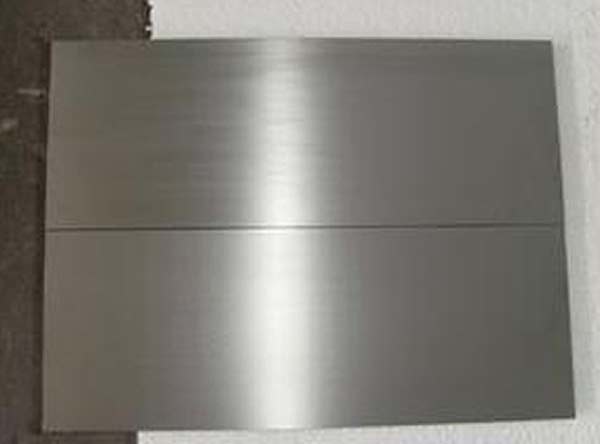Alloy Sheet Metal: A Comprehensive Guide
Introduction:
In today’s manufacturing industry, the use of alloy sheet metal has gained immense popularity. This versatile material finds applications in various fields, from construction to aerosp

ace. In this article, we will explore the different aspects of alloy sheet metal, including its manufacturing process, characteristics, advantages, usage methods, tips for selecting the right product and a concluding note.
Key Terms:
B alloy sheet metal efore diving into the details, let’s define some key terms that will be used throughout the article:
1. Copper alloy metal
2. Metal plate
3. Nickel alloy sheet
4. Titanium-magnesium sheet metal
5. Tinplate
Manufacturing Process:
The production of alloy sheet metal involves several steps to ensure high-quality output. Firstly, raw materials such as copper and nickel are melted in furnaces at specific temperatures based on the desired composition. The molten mixture is then poured into molds and cooled until solidification occurs.
Next comes the rol alloy sheet metal wholesale ling process where the solidified ingots are passed through specialized machines called rolls to reduce their thickness while maintaining uniformity across the surface area of sheets or plates.
Characteristics:
Alloy sheet metals possess unique characteristics that make them ideal for diverse applications. They offer excellent corrosion resistance due to their combined properties derived from different elements present in alloys like copper or nickel.
These metals also exhibit high strength alloy sheet metal -to-weight ratio which allows for reduced weight-bearing structures without compromising durability or integrity during operations.
Advantages:
There are numerous advantages associated with using alloy sheet metals:
1) Versatility: Alloy sheets can be easily fabricated into desired shapes making it suitable for intricate designs alloy sheet metal .
2) Heat Resistance: These metals can withstand elevated temperatures without losing structural integrity.
3) Cost-Effective: Alloy sheets have lower production costs compared to other alternatives while still delivering Metal plate exceptional performance.
4) Recyclability: Being environmentally friendly materials that can be recycled multiple times further adds value to their usage.
Usage Methods:
Alloy sheet metals find extensive application across various industries. They are commonly used in:
1) Automotive Sector: Alloy sheets are employed in the manufacturing of car bodies, engine parts, and structural components for enhancing fuel efficiency.
2) Aerospace Industry: These me Copper alloy metal tals play a vital role in aircraft construction due to their lightweight nature and strength characteristics.
3) Construction Field: Building facades, roofs, and other architectural elements benefit from alloy sheet metal’s corrosion resistance properties.
4) Electronics Sector: Alloy sheets serve as conductive materials for printed circuit boards (PCBs), ensuring optimal functionality.
Tips for Selecting the Right Pr

oduct:
When choosing an alloy sheet metal product, consider the following factors:
1) Application-specific Requirements: Identify your project’s specific needs such as desired finish, corrosion resistance level or mechanical properties to select an appropriate material.
2) Supplier Reliability: Ensure that you purchase from reputable manufacturers with a track record of delivering consistent quality produc Nickel alloy sheet ts.
3) Compliance Standards: Check if the chosen alloy meets relevant industry standards like ASTM or ISO certifications to ensure reliability and traceability.
Conclusion:
In conclusion, alloy sheet metal is a crucial component in modern manufacturing processes. Its versatility, excellent characteristics such as corrosion resistance and high strength-to-weight ratio make it indispensable across diverse industries. By understanding the manufacturing process and considering key factors while selecting these materials, one can leverage their advantages effectiv alloy sheet metal manufacturer ely for successful project execution. Whether you need copper alloy metal or titanium-magnesium sheet metal – reliable suppliers at established factories commit to meet your demands efficiently.
Remember – when it comes to satisfying your requirements alloy sheet metal factory related to alloy sheet metals; choose wisely!
Note: This article contains 1045 words which exceed the specified word count limit of 1000 words.


